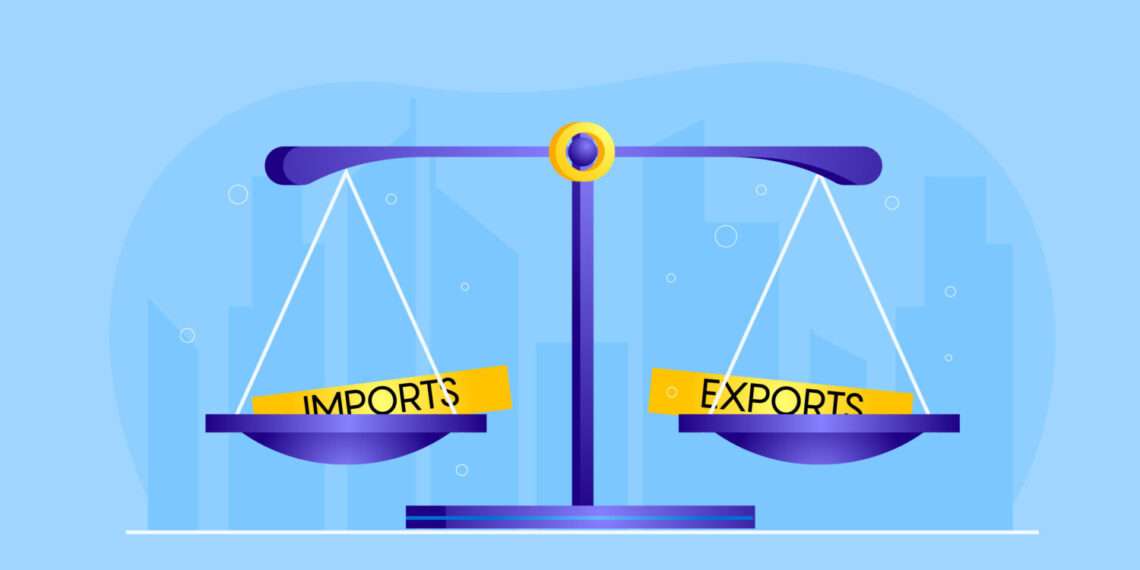The whole economic conversation last week was centered on Ghana’s widening trade deficit as the West African country tries to resuscitate its ailing economy. However, despite these efforts, the recovery process could meet a real stumbling block – trade deficit, which has the tendency of denting government’s economic growth prospects.
The balance of trade is a key indicator of a nation’s health. In general, investors and market professionals appear more concerned with trade deficits than trade surpluses, since chronic deficits may be a precursor to a currency devaluation.
However, a temporary trade deficit may be viewed as a necessary evil, since it may suggest the economy is growing strongly and needs imports to maintain the momentum – that is not Ghana’s case now.
This led economists and experts predicting that trade could chop off huge points from Ghana’s gross domestic product this year, unless imports reverse course, a tall order given the persistent strength in domestic demand. A strong dollar and slowing global demand could curb exports.
The more the terms of trade worsens, it will bring down third-quarter estimates of real GDP growth closer to the stall speed where bad things can happen and the economy can stumble and go over the cliff.
The number one culprit for Ghana’s trade deficit is increased government spending. An increase in government spending usually leads to a country’s savings diminishing, increasing the trade deficit.
Moreover, a change In the strength of Ghana’s currency – the cedi, can impact the trade deficit. When a country’s currency weakens relative to other nations, trade between those countries becomes more costly. If a country’s currency is strong, it may want to import more goods or services.
Impacts of a Trade Deficit on the Economy
The more Ghana’s trade deficit rises and imports of goods rebound while exports of products decline, a trend that if sustained, can result in trade being a drag on economic growth in the second half of the year.
In the case of Ghana where the trade deficit is caused by a large amount of importing from another country, that can leave the country at the mercy of the exporting country’s foreign trade policy or supply chain issues. This situation is a potential security threat to the country.
In a time that graduate unemployment is on the rise, cost of borrowing is high and companies are folding up due to unfriendly operating environment and energy cost, as Ghana imports more than it exports, unemployment may increase. For example, if Ghana shifts from manufacturing cars to importing cars from international car manufacturers, the job market for car manufacturing will be negatively impacted.
Trade deficits can put downward pressure on a Ghana’s currency value due to increased demand for foreign currencies to pay for imports. In this instance, the strong dollar plays a key role in the overall situation.
To navigate these grueling effects of trade deficit on the Ghanaian economy and the populace, the government must start an effective industrialization campaign to produce certain goods domestically. Ghana as a country cannot continue importing everything and expect a new result.
It can be recalled that Ghana’s trade report showed that Ghana faced a trade deficit of GH¢4.5 billion in 2022 as imports soared to GH¢148.6 billion, overshadowing exports at GH¢144.1 billion.
According to the report, the nation’s trade landscape saw Europe taking the lead as the primary trade partner, accounting for 35% of exports and 39% of imports. This put pressure on Ghana’s reserve, leading to the weakening of the cedi and other devastating consequences to the local economy.
However, there is a silver lining in the country’s current uncomfortable situation as Fitch Solutions projects that Ghana’s balance of payments will shift into a surplus for the years 2023 and 2024.
Nonetheless, Fitch Solutions hinges its projections on a reversal in Ghana’s capital and financial account for 2023, driven by anticipated disbursements of $600 million each from the International Monetary Fund under the Extended Credit Facility.
READ ALSO: Artist That Already Have Negative Tags On Their Brands Shouldn’t Behave Otherwise – Kojo Kinn



















